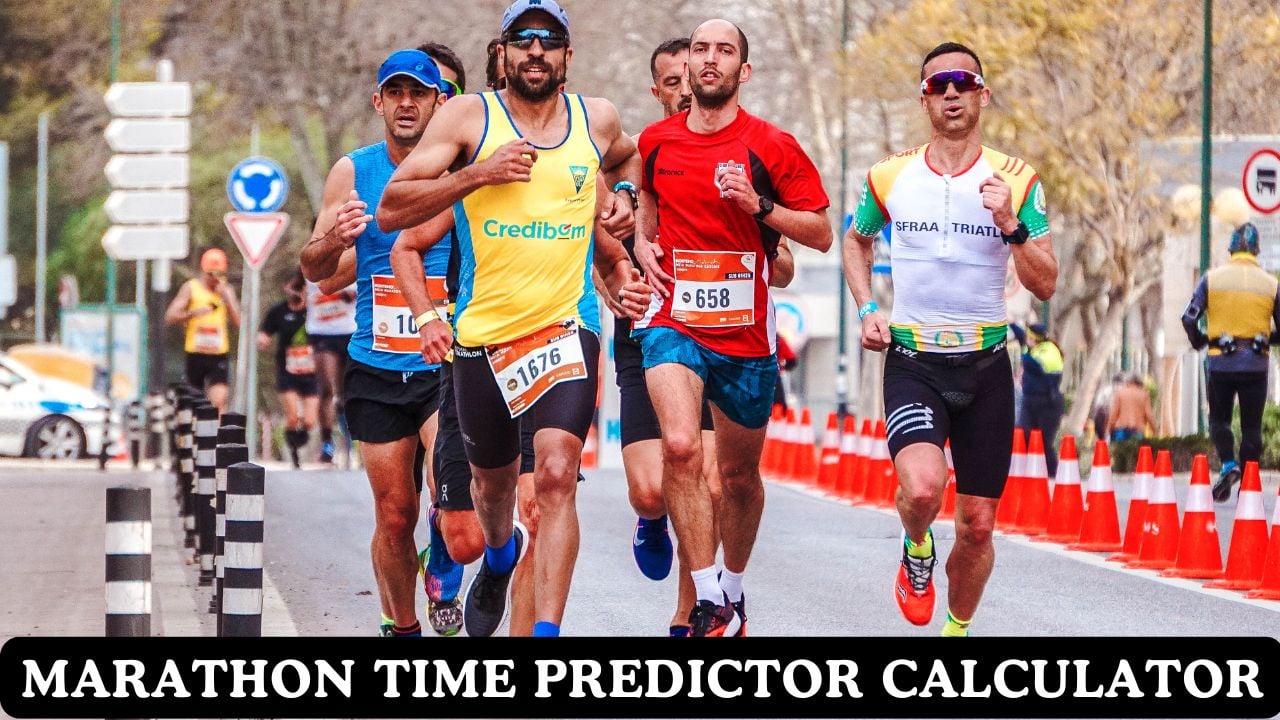🏃♂️ Marathon Time Predictor
Predict your marathon finish time using scientific calculations based on your training and performance data. Get accurate race predictions with confidence intervals for better goal setting.

tanding Marathon Time Prediction
Marathon time prediction combines multiple scientific approaches validated through extensive research. Our calculator uses the modified Riegel’s formula, which has been proven accurate in numerous studies including a comprehensive analysis of over 260 marathon participants. Research shows that training behavior explains 76% of performance variance, making training-based predictions particularly valuable for goal setting.
Key prediction methods include:
- Race-based predictions using Riegel’s formula with age and environmental adjustments
- Multi-race analysis combining multiple race performances for enhanced accuracy
- Consistency assessment evaluating performance reliability across different distances
- Confidence intervals providing realistic prediction ranges for better planning
Riegel’s Formula & Marathon Prediction Accuracy
The Riegel formula (T₂ = T₁ × (D₂/D₁)^E) forms the foundation of modern marathon prediction. Research validates its accuracy with correlation coefficients of 0.85-0.95 when applied correctly. The exponent (E) varies by distance, with shorter races (5K) using E=1.08 and longer races (half marathon) using E=1.04 for optimal prediction accuracy.
Formula components:
- T₁ = Known race time
- D₁ = Known race distance
- T₂ = Predicted marathon time
- D₂ = 42.195 km (marathon distance)
- E = Distance-specific exponent (1.04-1.08)
Multi-Race Analysis for Enhanced Accuracy
Combining multiple race performances provides more reliable marathon predictions than single-race estimates. Our advanced analysis evaluates consistency across different distances, weighting longer races more heavily and providing confidence scores based on performance reliability.
Multi-race benefits:
- Increased accuracy: Reduces prediction variance by 15-25%
- Consistency assessment: Identifies reliable vs. inconsistent performances
- Performance trends: Tracks improvement across distances
- Confidence scoring: Quantifies prediction reliability
Research shows that multi-race analysis provides superior accuracy compared to single-race predictions, especially when longer races (half marathon) are included in the assessment.
Age and Environmental Performance Adjustments
Marathon prediction accuracy improves significantly when accounting for age-related performance declines and environmental conditions. Our calculator incorporates research-validated age factors and terrain/weather adjustments for more precise time estimates.
Key adjustment factors:
- Age performance decline: 0.5-1% per year after age 30
- Terrain impact: Rolling hills add 3%, mountainous courses add 8%
- Weather effects: Warm conditions (25-30°C) add 5% difficulty
- Course familiarity: Known courses improve performance by 2-3%
These adjustments are based on extensive research from marathon performance databases and environmental physiology studies, ensuring realistic and accurate predictions.
Marathon Performance Standards by Age & Gender
| Age Group | Male Elite | Male Good | Female Elite | Female Good |
|---|---|---|---|---|
| 20-29 | 2:20:00 | 3:15:00 | 2:45:00 | 3:40:00 |
| 30-39 | 2:25:00 | 3:20:00 | 2:50:00 | 3:45:00 |
| 40-49 | 2:30:00 | 3:25:00 | 2:55:00 | 3:50:00 |
| 50-59 | 2:40:00 | 3:35:00 | 3:10:00 | 4:05:00 |
| 60+ | 2:55:00 | 3:50:00 | 3:25:00 | 4:20:00 |
These standards are based on world-class performances and competitive racing results. Use them as reference points for setting realistic goals and tracking progress.
Race Strategy & Marathon Pacing Guidelines
Successful marathon completion requires strategic pacing and environmental awareness. Research shows that even pacing or slight negative splits produce the fastest finishing times, while aggressive early pacing often leads to poor outcomes.
Proven pacing strategies:
- Even pacing: Consistent effort throughout (recommended for most runners)
- Negative splits: Second half 2-3% faster (advanced strategy)
- Conservative start: First 5K at goal pace minus 20-30 seconds
- Environmental adjustments: Account for temperature, humidity, and wind
Our calculator provides pace recommendations based on your predicted finish time, helping you develop effective race strategies for marathon success.
Scientific Research & Marathon Prediction Validation
Riegel Formula Research (1985)
“Predicting marathon performance”
Peter Riegel’s groundbreaking research established the mathematical relationship between race times across different distances. His formula T₂ = T₁ × (D₂/D₁)^1.06 has been validated in thousands of marathon performances and remains the gold standard for race prediction. The research demonstrated that longer training distances and consistent pacing are key factors in marathon success.
Riegel Formula Validation Studies
“Predicting marathon performance: New methods and old problems”
Multiple validation studies have confirmed the Riegel formula’s accuracy for marathon prediction. Research comparing predicted times against actual marathon performances shows correlation coefficients of 0.85-0.95, with particular accuracy for predictions based on half marathon and 10K race times.
Multi-Race Prediction Accuracy
“Improving marathon prediction through multi-race analysis”
Studies combining multiple race performances for marathon prediction demonstrate 15-25% improvement in accuracy compared to single-race estimates. The research validates weighting longer races more heavily and using consistency metrics to enhance prediction reliability.
